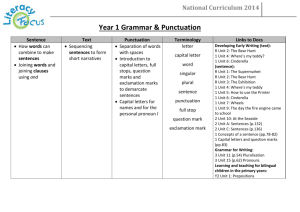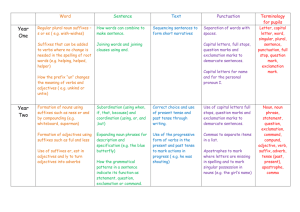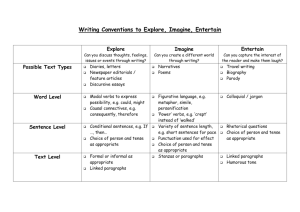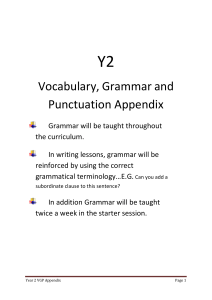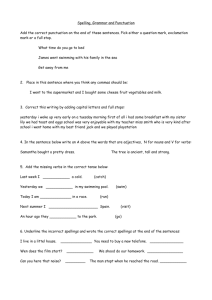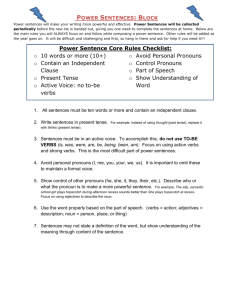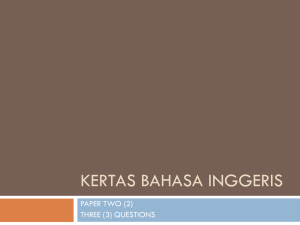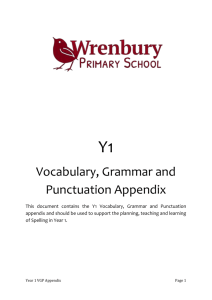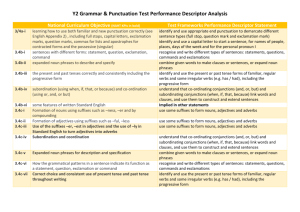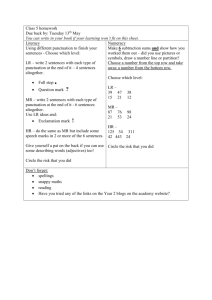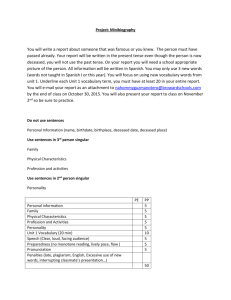Y2 - Astbury St Mary`s Primary School
advertisement
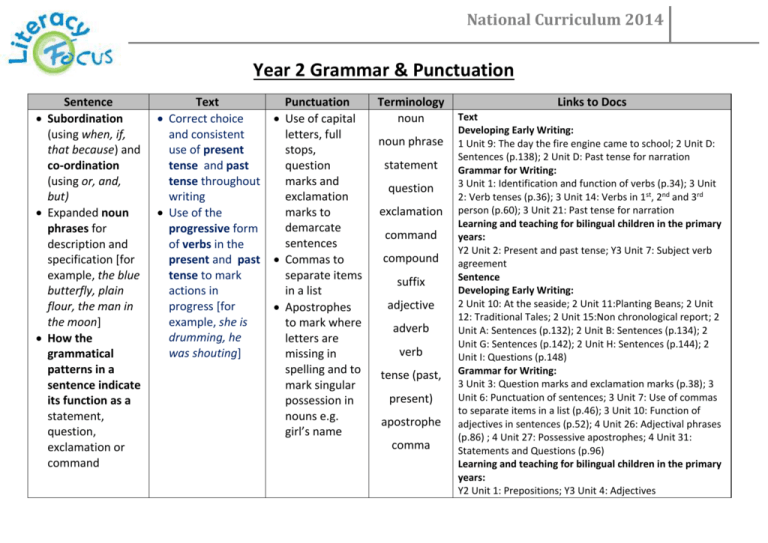
National Curriculum 2014 Year 2 Grammar & Punctuation Sentence Subordination (using when, if, that because) and co-ordination (using or, and, but) Expanded noun phrases for description and specification [for example, the blue butterfly, plain flour, the man in the moon] How the grammatical patterns in a sentence indicate its function as a statement, question, exclamation or command Text Correct choice and consistent use of present tense and past tense throughout writing Use of the progressive form of verbs in the present and past tense to mark actions in progress [for example, she is drumming, he was shouting] Punctuation Use of capital letters, full stops, question marks and exclamation marks to demarcate sentences Commas to separate items in a list Apostrophes to mark where letters are missing in spelling and to mark singular possession in nouns e.g. girl’s name Terminology noun noun phrase statement question exclamation command compound suffix adjective adverb verb tense (past, present) apostrophe comma Links to Docs Text Developing Early Writing: 1 Unit 9: The day the fire engine came to school; 2 Unit D: Sentences (p.138); 2 Unit D: Past tense for narration Grammar for Writing: 3 Unit 1: Identification and function of verbs (p.34); 3 Unit 2: Verb tenses (p.36); 3 Unit 14: Verbs in 1st, 2nd and 3rd person (p.60); 3 Unit 21: Past tense for narration Learning and teaching for bilingual children in the primary years: Y2 Unit 2: Present and past tense; Y3 Unit 7: Subject verb agreement Sentence Developing Early Writing: 2 Unit 10: At the seaside; 2 Unit 11:Planting Beans; 2 Unit 12: Traditional Tales; 2 Unit 15:Non chronological report; 2 Unit A: Sentences (p.132); 2 Unit B: Sentences (p.134); 2 Unit G: Sentences (p.142); 2 Unit H: Sentences (p.144); 2 Unit I: Questions (p.148) Grammar for Writing: 3 Unit 3: Question marks and exclamation marks (p.38); 3 Unit 6: Punctuation of sentences; 3 Unit 7: Use of commas to separate items in a list (p.46); 3 Unit 10: Function of adjectives in sentences (p.52); 4 Unit 26: Adjectival phrases (p.86) ; 4 Unit 27: Possessive apostrophes; 4 Unit 31: Statements and Questions (p.96) Learning and teaching for bilingual children in the primary years: Y2 Unit 1: Prepositions; Y3 Unit 4: Adjectives
